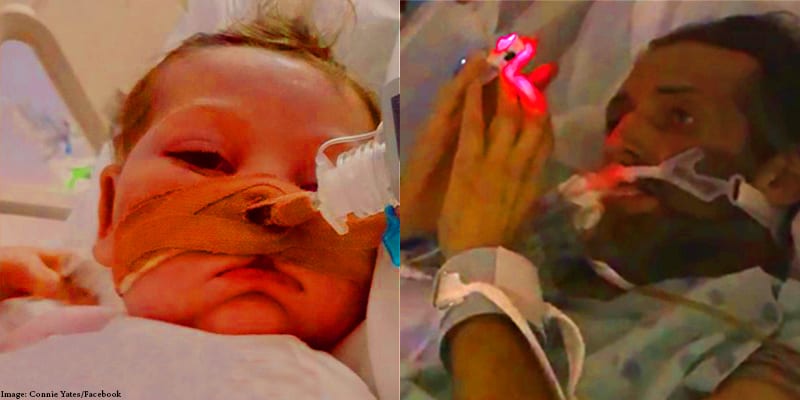The story of Charlie Gard and his fight for Life has garnered international attention. The 11-month-old boy has a rare mitochondrial disorder. At the beginning of July, Charlie was not expected to live more than a few days, as the hospital planned to remove him from life-sustaining care against his parents’ wishes. He is still alive, however, and shockingly the hospital requested a new court hearing based on “fresh evidence” in Charlie’s case. This week, the court agreed to allow an American doctor to travel to London to examine Charlie and assess the likelihood of success with the experimental treatment.
Since he was eight-weeks-old, Charlie has been receiving life-sustaining care at Great Ormand Street Hospital in London. Even though Charlie’s parents, Chris Gard and Connie Yates, raised more than $1.3 million to transport their ill son to the United States for experimental treatment, the hospital continued to request permission from the court to remove the baby from life-support. Charlie’s family faced a series of anti-Life rulings as they lost appeal after appeal, finally losing their legal battle in the European Court of Human Rights.
Great Ormand Street Hospital was expected to end Charlie’s Life shortly after the devastating court ruling, and they even told Charlie’s parents they would not be allowed to privately transport their son home to die. A glimmer of hope arose as public outcry escalated. Specialists treating other children with mitochondrial disorders similar to Charlie’s were able to contact the hospital and provide evidence of the treatment’s possible success. The judge in the latest hearing was moved by the evidence from an American doctor who testified via video.
The specialist, Dr. Michio Hirano, is a neurologist at Columbia University Medical Center, who has successfully treated other children with conditions like Charlie’s. Hirano will travel to London and assess Charlie on Monday and Tuesday, meeting with the team currently providing his care. The judge promised a final ruling by July 25 based on the evidence Dr. Hirano presents to the court.
While the hopeful turn in Charlie’s journey is good news, the injustice of his case remains. His parents, not the court, should decide if Charlie should travel to the United States for treatment. As they have said time and again, what they want is to give their son a chance at Life. Hospital administrators and judges have no right to intervene and threaten his Life.
Sadly, cases like Charlie’s are not unique. In Texas under the draconian 10-Day-Law, hospital committees can decide to withdraw life-sustaining care against the wishes of the patient and his or her family with just ten days’ notice. Chris Dunn was a victim of this anti-Life Texas law. What we can learn from Charlie’s case is that hospital administrators will change their course of action in the face of public outcry. As news of Charlie’s impending death spread, President Donald Trump and Pope Francis were among the celebrities who spoke out on behalf of Charlie’s Right to Life. In order to change the law in Texas, we must use our voices on social media to stand for Life. Share Chris Dunn’s story today.

